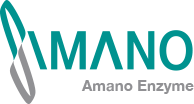Since the advent of iPS cells, there have been high expectations regarding their potential application in the field of regenerative medicine. Some time has elapsed since the enforcement of the Act on the Safety of Regenerative Medicine and the Pharmaceutical and Medical Device Act on November 25, 2014, and movements toward industrialization of regenerative medicine are growing more and more active.
Enzymes also play an important role in the field of regenerative medicine. Examples of applications of enzymes to regenerative medicine include cell dissociation in cell culture (for dissociation of cell aggregates and isolation of target cells from tissue) as well as removal of cumulus cells containing hyaluronic acid (a viscous substance interfering with sperm induction) in intracytoplasmic sperm injection. Since these manipulations require countermeasures for protection against bacteria and viruses at the highest level, enzyme products used for these manipulations must be of higher quality than conventional reagents.
In response to these needs, Amano Enzyme has not only achieved animal-free (no materials of animal origin used), low-endotoxin, and GMP-compatible production, but new production equipment aimed at achieving class 100 (grade A) sterility in the filling/lyophilization process has also been introduced to ensure enzyme production in a clean environment. The inner space of a building at Yoro Plant (Ogaki City, Gifu, Japan) has been refurbished and installation of isolators for isolation of filling/lyophilization machines has been completed. To our knowledge, such efforts towards providing a complete supply of enzyme products for regenerative medicine are unprecedented in the enzyme industry.
Amano Enzyme is planning to launch a total of 5 items for regenerative medicine, including 3 “first-shot” items (Collagenase “Amano” SF, Thermolysin “Amano” SF, and Hyaluronidase “Amano” SF) and 2 follow-on items (clostripain and clostolysin, a neutral protease). Except for hyaluronidase for intracytoplasmic sperm injection, the remaining 4 items are intended for cell dissociation. In addition, customizable orders such as production of blended enzyme preparations will be accommodated in response to special customer needs.


